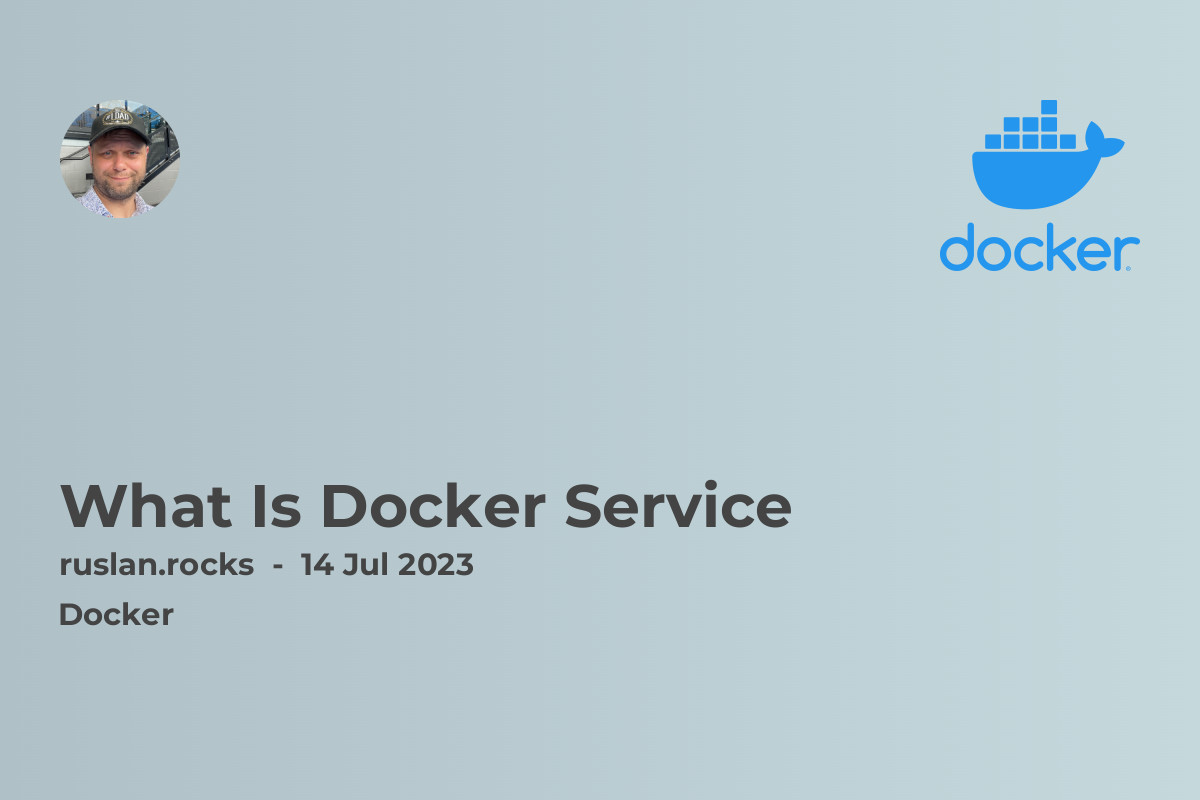- Understanding Docker Service
- Benefits of Docker Service
- Using Docker Service in Real-world Applications
- Conclusion

If you've ever been involved in software development or IT operations, you've likely come across Docker and its containerization technology. Docker has transformed the way applications are deployed and run, making it easier, faster, and more efficient. In this article, we'll explore what Docker is, how it works, and how it is revolutionizing application deployment.
Understanding Docker Service
Docker is an open-source platform that automates the deployment, scaling, and management of applications using containerization. It allows developers to package an application and its dependencies into a standardized unit called a container. These containers can then be easily transported between environments, ensuring consistency and reliability throughout the deployment process.
Docker Service refers to the key component of Docker that manages the deployment and scaling of containers. It provides a way to define and manage services, which represent a group of containers running the same application. Docker Service allows you to specify the desired state of your services, such as the number of replicas, resource limits, and networking configuration. It then takes care of orchestrating the deployment and continuously monitors the services to ensure they are running as expected.
Benefits of Docker Service
Docker Service offers several benefits that make it a popular choice for application deployment:
-
Portability: Docker containers are lightweight and portable, making them easy to move between different environments. With Docker Service, you can ensure that your application runs consistently across development, testing, and production environments.
-
Scalability: Docker Service makes it easy to scale your application horizontally by adding or removing replicas of your services. This allows you to accommodate changes in traffic and ensures high availability and performance.
-
Isolation: Docker containers provide process isolation, ensuring that each service runs independently without interfering with other services or the underlying host system. This isolation enhances security and stability.
-
Resource Efficiency: Docker Service optimizes resource utilization by intelligently managing the allocation and utilization of compute resources across services. This results in higher efficiency and cost savings.
-
Easy Management: Docker Service simplifies the management of your application by providing a single interface to define and control your services. It automates many tasks, such as load balancing, service discovery, and rolling updates, reducing the operational overhead for developers and operators.
Using Docker Service in Real-world Applications
Docker Service is widely used in various industries and for different types of applications. Here are a few examples:
-
Microservices Architecture: Docker Service is an excellent choice for implementing a microservices architecture. It allows you to modularize your application into independently deployable and scalable services, enabling faster development, testing, and deployment cycles.
-
Continuous Integration and Deployment: Docker Service integrates seamlessly with continuous integration and deployment (CI/CD) pipelines. It enables developers to quickly deploy their applications to various environments, reducing time-to-market and improving agility.
-
IoT Applications: Docker Service is well-suited for deploying and managing IoT applications. Its lightweight containers and efficient resource utilization make it ideal for running applications on resource-constrained devices.
-
Hybrid Cloud Deployments: Docker Service simplifies the deployment of applications across hybrid cloud environments by abstracting the underlying infrastructure. It enables seamless deployment and migration of services between public and private clouds.
-
Highly Available Web Applications: Docker Service allows you to easily scale and load balance your web application across multiple replicas. This ensures high availability and fault tolerance, even during periods of high traffic.
Conclusion
Docker Service has revolutionized the way applications are deployed and managed. Its containerization technology provides portability, scalability, isolation, resource efficiency, and easy management. Whether you're building microservices, deploying IoT applications, or running highly available web applications, Docker Service can help streamline and optimize your deployment process. Embrace Docker Service and unlock the full potential of your applications.
Related Topics:
- Docker vs Kubernetes: Battle of Container Orchestration
- Understanding Containerization: The Future of Application Deployment
- Microservices Architecture Benefits: Why It's Gaining Popularity
- Continuous Integration and Deployment: Agile DevOps Practices
- Hybrid Cloud vs Multi-Cloud: Choosing the Right Cloud Strategy
